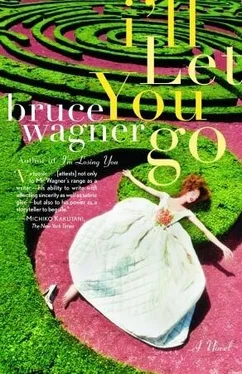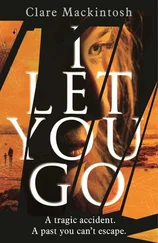“Did you bring the letter?” asked the cousin.
Tull nodded.
“Then read it.”
“I already have. About a thousand times.”
“Then read it again —out loud.”
“What’s the point?”
Edward glared. Tull took the document from his pocket, unfolding it like a cynical tourist would a useless map.
“ ‘If I was shocked at the reckless insinuation—’ ”
“From the beginning, Tull.”
“ ‘ Mr. Tabori,’ ” he began, annoyed. “ ‘If I was shocked … at the reckless insinuation of your employee … I was absolutely dumbfounded by the letter from your attorney which my office received today.’ New paragraph . ‘I have referred the matter to my own counsel, who would probably object to my sending this note. I suggest that you retract your slanderous allegations or you will find this former customer to be a litigious one. Sincerely, Marcus Weiner.’ ”
Tull paused; his cousin sighed deeply.
“A bit stilted, no? His guilt is apparent.”
“What difference does it make?”
“What difference? I’ll tell you: we found him. Lucy did, anyway.”
The air left Tull’s lungs. “You found him?”
“It seems so.”
“What are you saying ? You found him where ? How—”
“Good old gumshoe work. And the Internet, I am pleased to say, had nothing to do with it. Lucy spoke with him on the phone, plain as day — not a single e-mail exchanged! Hard man to reach, as you may well imagine.”
Tull broke into a sweat and was unable to swallow. “Where is he?”
“Los Angeles area,” said the cousin, coolly. “We made an appointment to see him. Tomorrow, after school.”
Edward pressed a touch-panel and the lights dimmed. The heavy curtains lifted, layer by crushed gold layer.
“But, does anyone — does anyone know ? Did you tell your—”
“God, no! And no one’s going to. Everyone’s going to keep their mouths shut. This is strictly between us .”
The projector was dropping from its hidden perch all along and within moments the MGM lion roared. From the blackness came a noisy choir of ticking clocks. A sundial appeared from stage left, cross-fading with an hourglass from stage right (just like in the old Twilight Zone s Tull watched on Thanksgiving Day marathons), followed by myriad antiquey minute-repeater mechanisms, which culminated in a floating Big Ben, its watchtower face erupting in a thunderclap of light. A title bubbled up:
H. G. Wells’s
The Time Machine
“ I thought it apropos,” said the cousin. “Except Rod Taylor’s going forward —we need to go backward .”
“This isn’t funny,” said Tull, reaching over to lower the sound. “And I’m not sure I want anyone to be there.”
“You mean, you want to go alone?”
“That’s right.”
“But why?” asked Edward.
Tull began to tremble. “He’s my —father , Edward … and I — well, I just think it would be better if—”
“Your father ? Oh no, Tull, no! But we’ll find him , too — of that I am convinced. This is merely the first step.”
“But you said we had an appointment—”
“We do —with Mr. Tabori! Tomorrow at four. Now, can we please watch the movie?”

Tabori & Company, purveyor of antiquarian books, was housed in a former mortuary built in the late twenties, now sitting on the high-end stretch of Melrose Avenue. The anachronistic open-vaulted Gothic-style edifice was a jewel box of vellum and leather, its fine stained-glass panels wittily incorporating caricatures of Tabori père et fils , gentle brotherhood of bibliophiles.
When Emerson Tabori received a call from a girl identifying herself as Lucy Trotter, he immediately confirmed the familial connection — a call from any member of that illustrious clan, no matter how youthful, need be taken with utmost seriousness. To be safe, Lucy said she wished to procure a gift for her grandfather, cannily begging Mr. Tabori’s discretion if he by chance spoke to Mr. Trotter in the interim. (The redhead knew he was a longtime customer.) She was in full detective mode.
Bearded Emerson, youngest of the brethren, stood no taller than Tull; though his satyric countenance put one in mind of that other Toulouse — he of Montmartre cabarets — it was impossible to think of him in the diminutive. His unflagging energy, passionate apprehension and sheer-rock-face intellect (he was a well-known monographist and prolific contributor to The Dickens Newsletter, The Dickens Project, The Doughty Street Dickens and The Dickens Universe ) made him appear like a great turbine from the dawn of the industrial age, a turbine overseen, if you will, by a pair of cool blue-gray eyes from which no textual footnote might escape. His memory was prodigious and phantasmagoric: he could still quote by heart the little van Gogh — penned poem he’d sold Louis Trotter (for $700,000) along with a letter to Theo wherein the hapless artist bitched about having no money to purchase oils.
The bell at the side door rang and there was a stir among employees, as the musketeers standing at the entrance — four, including Pullman — were fairly unforgettable. Edward, outfitted in a rather demure diaphanous Gigli cape, embroidered linen hood and the sort of delicate white cotton gloves with which one handles rare photographs, leaned like a holy invalid on both Lucy and his cousin. (Sling Blade, who had no interest at all in entering the sanctum sanctorum, stood under the gull wing of the Mauck and smoked, while Epitacio remained at Saint-Cloud, otherwise engaged.) The Great Dane made the usual unheralded, regal entrance and lay down, stretching his muscular spotted self on the terrazzo floor at the foot of a suite of chairs renowned for having once been featured in Gone with the Wind . A nervous employee sashayed over to suggest the dog remain outside; before she had the chance, Mr. Tabori brought her up short with an acrid little smile. She backed off.
“How marvelous to meet you all!” he exclaimed, with retailer’s outstretched arms. But that is unfair, for he cared nothing of money.
Introductions were made and genealogy silently noted: These two belong to Dodd, son of Louis — this one to Katrina, beloved, famously jilted, drug-addicted daughter of same .
He took them on tour and showed them folios and autographs, and rows of buttery bindings decorated in gilt, with watered-silk endleaves. He had no idea what they had in mind, yet planted seeds in the several-thousand-dollar range according to his sense of what the old man might enjoy, such as a 1900 edition of Days of the Dandies , an anthology of British court life.
The curious titanium-braced fashionista pointed to this and that while his braided sister explored the shop as if it were a fabulous tree house. The one called Tull seemed saturnine, and looked as if about to flee.
They passed a vitrine of handwritten folios.
“Bret Harte,” said Mr. Tabori, gnomishly enthused. “Tiny handwriting, no? That’s just a fragment; what’s actually called a blad — short for ‘blotting pad.’ You should see Poe’s! He had two styles of handwriting, one for manuscripts, the other for correspondence. When he wrote his stories, he usually tried to approximate the typeface of a book. And Brontë! Charlotte Brontë is worse— almost pathological. You need a magnifying glass!”
“Mr. Tabori,” began Lucy, circling back. The boys turned in anticipation. “Do you — do you have any Nancy Drew?”
Читать дальше













